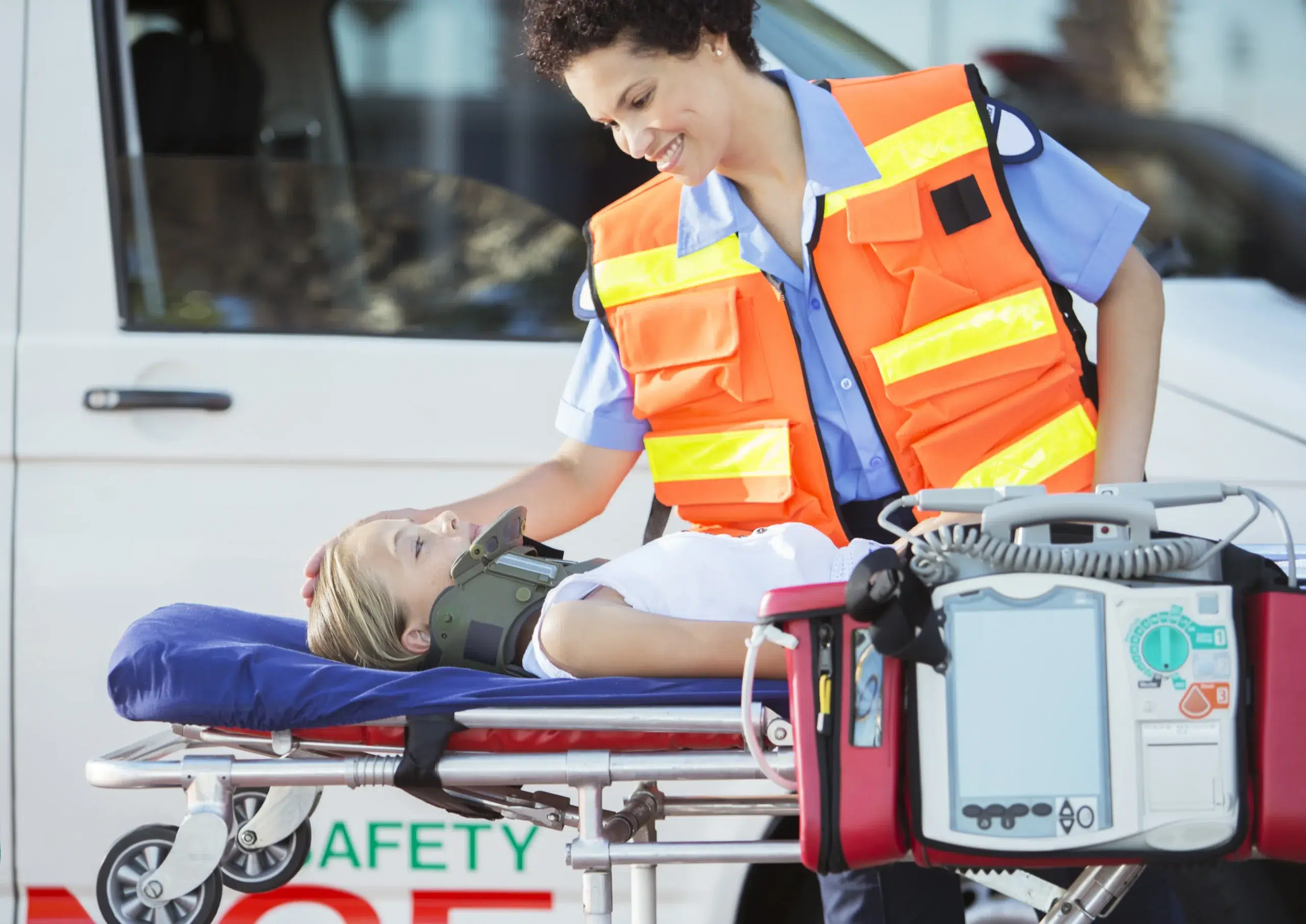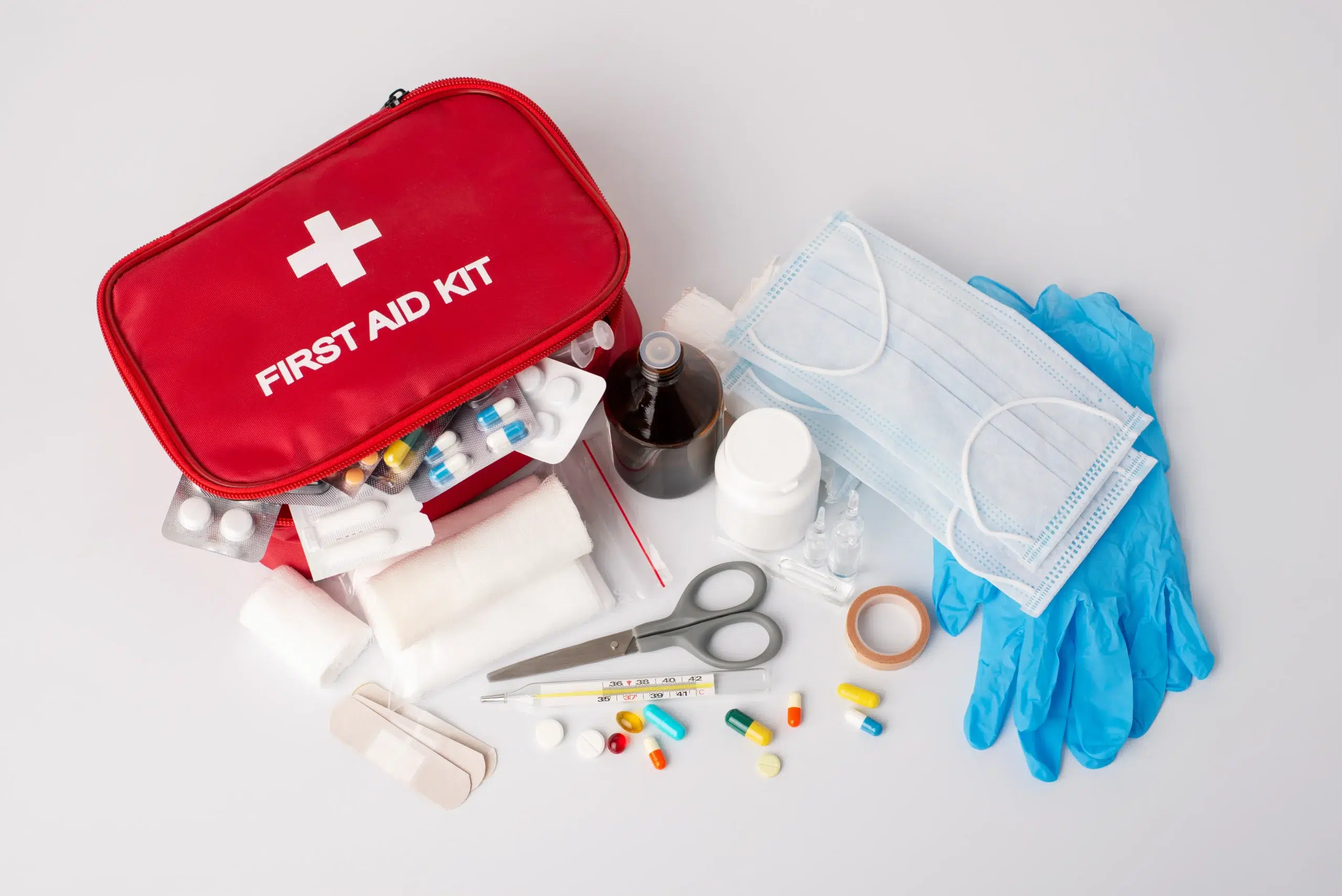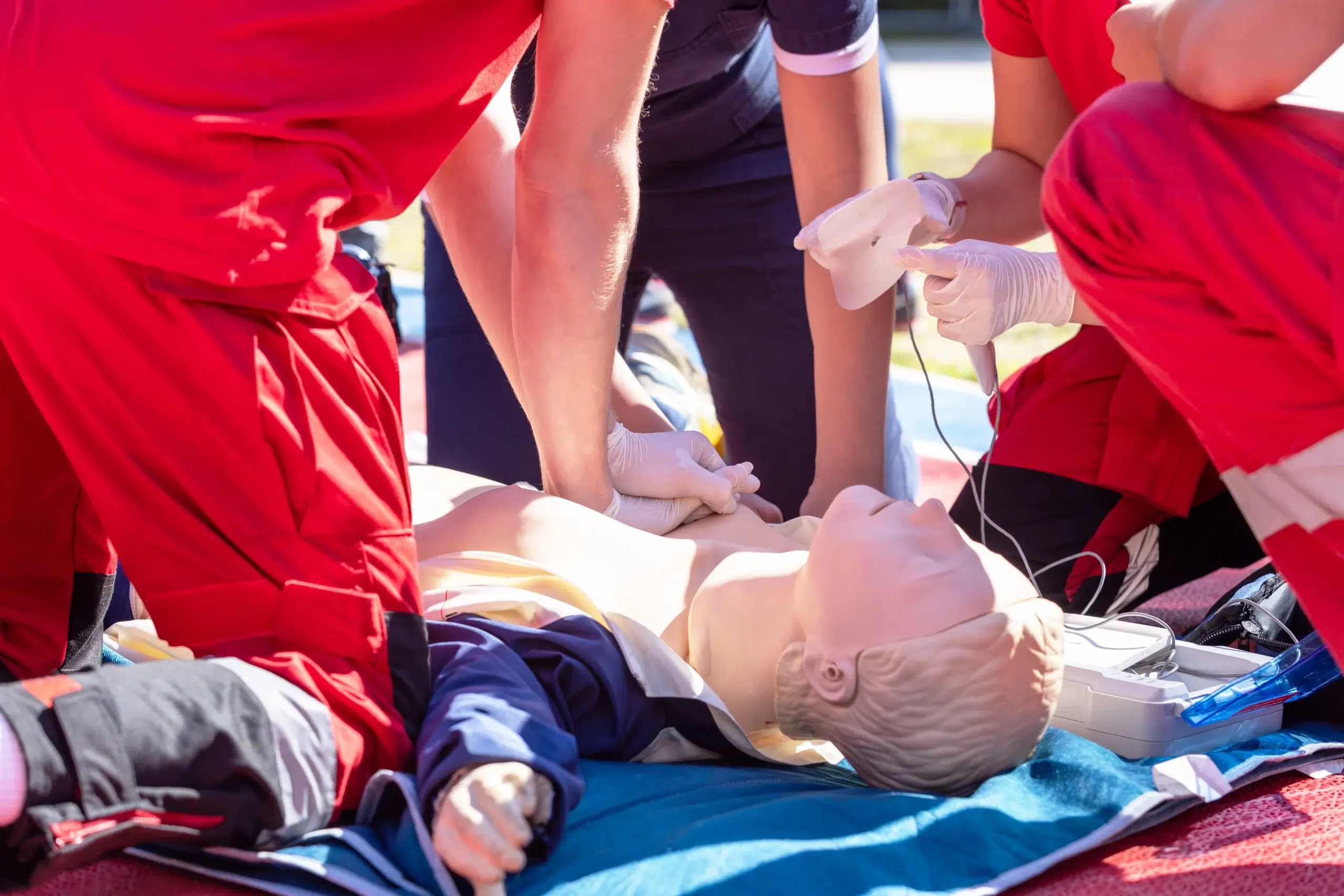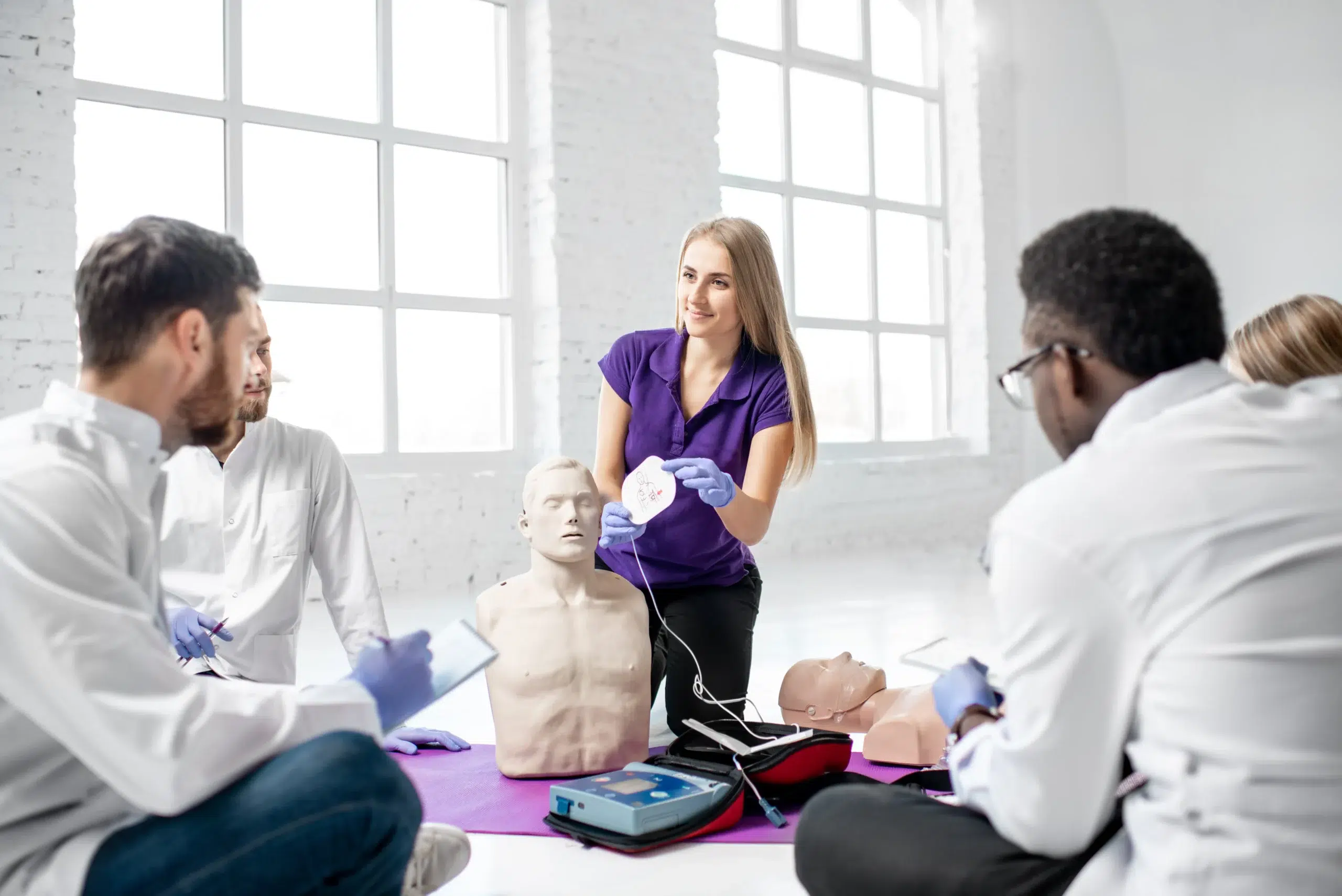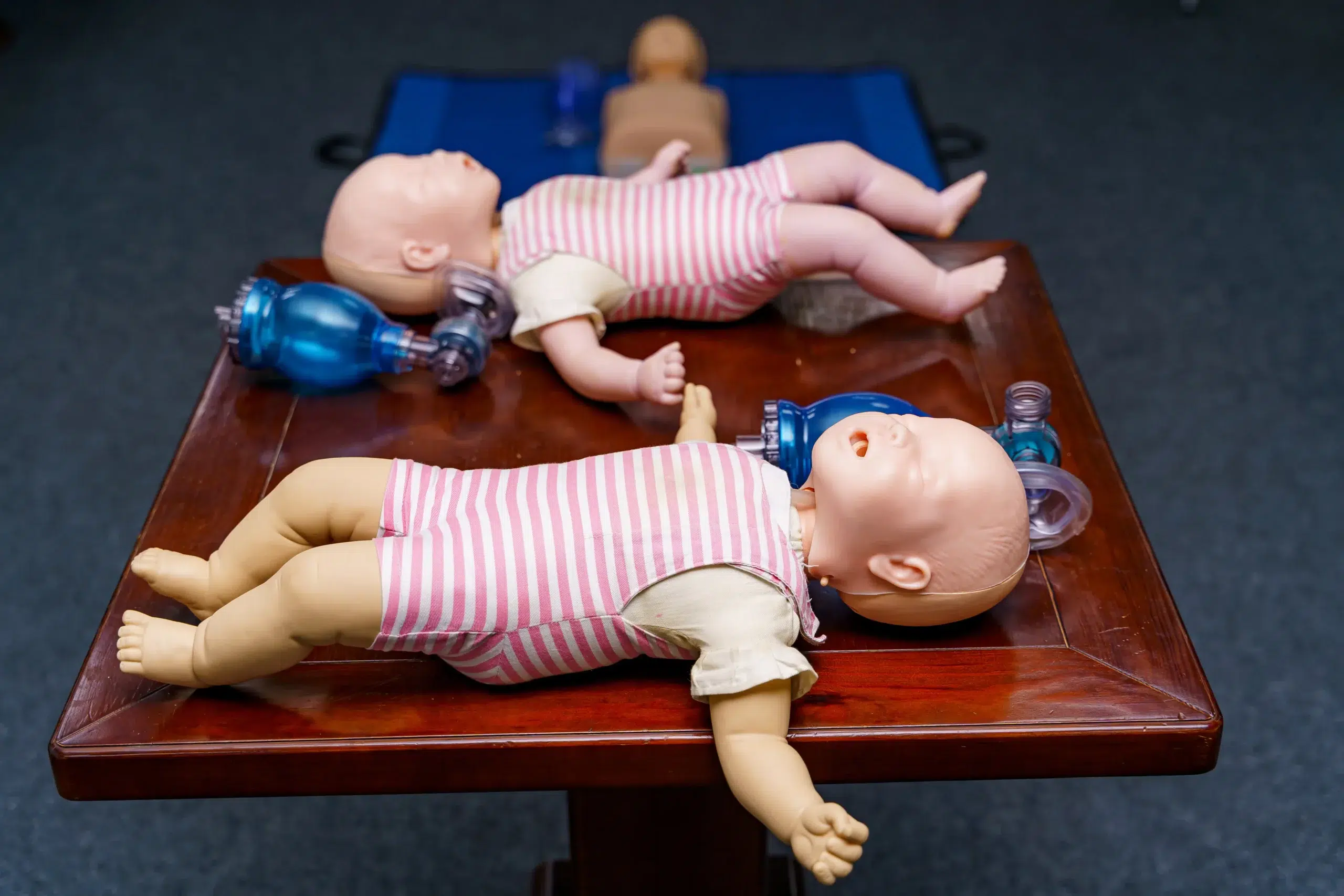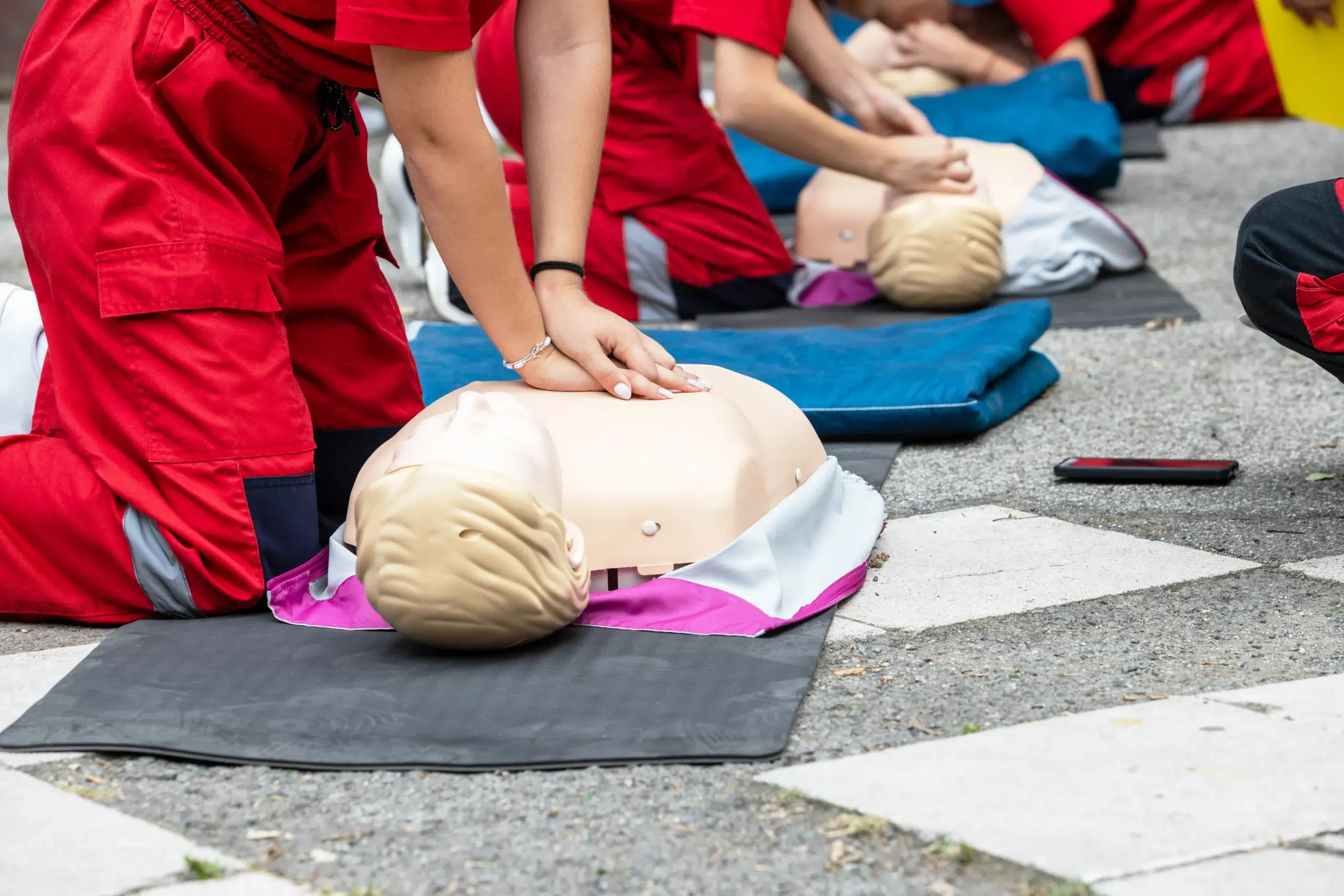Empowering yourself with life-saving skills like CPR is a decision you won’t regret. If you’re in Citrus Heights and seeking a convenient and flexible way to learn CPR, online classes offer a great solution. This guide is designed to be your comprehensive resource for understanding online CPR classes in Citrus Heights. We’ll explore the benefits of online learning, discuss different types of CPR certifications, and provide insights into finding reputable providers in your area. We’ll also cover pricing, the online learning experience, and address common concerns about online CPR training. Whether you’re a healthcare professional, a childcare provider, or simply a concerned citizen, this guide will help you find the perfect online CPR class in Citrus Heights to fit your needs and empower you to act in emergencies.
Key Takeaways
- Online CPR training fits your schedule: Learn life-saving skills at your own pace and often at a lower cost than traditional classes. Combine online learning with in-person skills sessions for the most well-rounded training.
- Credible certification matters: Ensure your chosen program is accredited by a reputable organization like the American Heart Association. Citrus Heights CPR Classes offers various AHA-compliant courses, including BLS, ACLS, PALS, and First Aid.
- Stay current with your CPR skills: Renew your certification every two years and refresh your knowledge through continuing education and regular practice to confidently respond to emergencies.
What are Online CPR Classes?
Online CPR classes offer a convenient and flexible way to learn this life-saving skill. They deliver the same comprehensive training as traditional in-person classes, but through a digital platform. All you need is internet access, a compatible device like a computer or tablet, and a willingness to learn. Think of it as learning CPR from the comfort of your own home, at your own pace. You’ll typically complete the online portion, then schedule a quick in-person skills session to demonstrate your technique and receive your certification.
Benefits of Online CPR Training
Juggling work, family, and other commitments can make it tough to carve out time for traditional classes. Online CPR training offers the flexibility to learn around your own schedule. Study whenever and wherever you have an internet connection, whether that’s during your lunch break or late at night. This accessible format also tends to be more affordable than in-person classes. Plus, studies show that incorporating eLearning into CPR training can improve both knowledge retention and overall satisfaction with the process.
Types of Online CPR Certifications
Several reputable organizations offer online CPR certifications. The American Heart Association provides widely recognized online courses, including Basic Life Support (BLS), Advanced Cardiovascular Life Support (ACLS), and Pediatric Advanced Life Support (PALS). It’s important to ensure any online CPR certification you choose is from a credible organization accredited by the AHA or a similar body. This ensures your certification is valid, respected, and meets any job requirements or personal preparedness goals.
Find Top Online CPR Class Providers in Citrus Heights
Finding the right CPR class can feel overwhelming with so many options. To simplify your search, we’ve compiled a list of reputable CPR training providers in Citrus Heights. Whether you’re a healthcare professional needing to renew your ACLS certification or a parent wanting to learn basic CPR, there’s a course out there for you.
Citrus Heights CPR Classes
Citrus Heights CPR Classes offers a comprehensive range of American Heart Association (AHA) courses, including BLS, ACLS, and PALS. They understand busy schedules and offer flexible class times to fit your needs. This training center focuses on providing high-quality CPR and first-aid education specifically designed for the Citrus Heights community. They also offer RQI classes and discounts for groups. Learn more on their website.
American Heart Association
While the AHA doesn’t directly offer classes, they set the standards for CPR training. Many certified training centers, like Citrus Heights CPR Classes, use their curriculum. The AHA’s RQI program is a great option for healthcare providers looking for a modern and efficient way to maintain their certifications. This program emphasizes hands-on skills and provides real-time feedback, ensuring you’re fully prepared for any emergency. Citrus Heights CPR Classes offers these RQI courses.
Red Cross
The American Red Cross is a well-known provider of CPR and first aid training. Their online CPR courses are readily accessible and self-paced, allowing you to learn essential lifesaving skills from the comfort of your home. This is a convenient option for those with busy schedules or who prefer to learn independently.
Safety Training Seminars
Safety Training Seminars is a woman-owned AHA Training Center offering various CPR courses, including BLS, ACLS, and PALS, in Citrus Heights. They provide both in-person and online training options, catering to different learning preferences. Their focus on high-quality instruction makes them a reliable choice for individuals and organizations seeking comprehensive training. Learn more on the Citrus Heights CPR Classes website.
ProCPR
ProCPR offers a variety of online CPR and first aid courses suitable for both healthcare professionals and the general public. Their flexible, self-paced courses allow you to learn at your own speed while receiving comprehensive training in essential CPR techniques and emergency response. Visit the ProCPR website to explore their course offerings.
Understand Formats and Requirements for Online CPR Classes
CPR certification classes come in different formats, each designed to fit various learning styles and schedules. Understanding these options will help you choose the best fit for your needs.
Explore Fully Online Courses
Fully online CPR courses offer flexibility and convenience. You can complete the coursework at your own pace, anytime, anywhere with an internet connection. This format often involves interactive modules, videos, and simulations to teach CPR techniques and protocols. However, it’s important to note that some fully online courses may not provide OSHA certification or meet requirements for certain workplaces, like those from the Red Cross. Always check specific course descriptions to ensure the certification aligns with your professional needs. If you’re looking for American Heart Association certification, check out our BLS course.
Explore Hybrid Courses
Hybrid courses combine online learning with the hands-on practice required for proper CPR certification. These blended learning experiences typically involve completing the cognitive portion online, followed by an in-person skills session. This allows you to learn the theoretical concepts at your own pace before demonstrating your skills to a certified instructor. Providers like In-Home CPR often bring the necessary equipment to your location. This format is a great option for those who value both independent study and hands-on training.
Meet Technical Requirements for Smooth Learning
Online and hybrid CPR courses require a reliable internet connection and a compatible device. While specific technical requirements vary, you’ll generally need a computer or tablet with sufficient processing power and memory. The Red Cross, for example, recommends at least 4GB of RAM and an operating system like Windows 7/8/10 or OS X Snow Leopard 10.6+. Review the provider’s technical specifications before registering. If you have questions, contact us. We’re happy to help!
Get Certified: Available Certifications and Their Recognition
This section outlines the various certifications available through Citrus Heights CPR Classes and their respective recognitions. Knowing the distinctions will help you choose the right course for your needs.
BLS Certification
Basic Life Support (BLS certification) is an essential credential for healthcare providers and students. It covers core life-saving skills for adults, children, and infants, including CPR, AED use, and relief of choking. BLS Certification is often a prerequisite for other advanced certifications. Citrus Heights CPR Classes offers BLS training that follows American Heart Association guidelines, ensuring you receive high-quality, nationally recognized instruction.
ACLS Certification
Advanced Cardiovascular Life Support (ACLS) builds upon the foundation of BLS. This course is designed for healthcare professionals who manage cardiopulmonary arrest and other cardiovascular emergencies. It delves into advanced airway management, pharmacology, and team dynamics during resuscitation scenarios. Like BLS, our ACLS courses adhere to American Heart Association standards.
PALS Certification
Pediatric Advanced Life Support (PALS) focuses on the specialized needs of infants and children facing respiratory or cardiac emergencies. This course equips healthcare providers with the knowledge and skills to provide effective treatment in these critical situations. Citrus Heights CPR Classes offers PALS training that meets the rigorous standards of the American Heart Association. We also offer the RQI program, a convenient way for professionals to maintain their PALS certification.
First Aid Certification
While not solely focused on resuscitation, First Aid certification is a valuable addition to your skillset. This course covers essential techniques for managing injuries, illnesses, and other medical emergencies. Citrus Heights CPR Classes provides comprehensive First Aid training that meets OSHA requirements, giving you the confidence to respond effectively in various situations. This certification is often paired with CPR/AED training to provide a well-rounded approach to emergency response.
Find Pricing and Discounts for Online CPR Classes
CPR certification is an investment in your skills and the well-being of others. Understanding pricing and available discounts can help you find a course that fits your budget.
Individual Course Pricing
When considering online CPR classes, check the cost of individual courses. Providers like Safety Training Seminars in Citrus Heights offer various American Heart Association courses, including CPR, BLS, ACLS, and PALS. Each course has its own pricing structure. Knowing the price upfront helps you compare options and choose the right course. Contact Citrus Heights CPR Classes directly for their latest pricing on individual courses through their contact page. They offer a low-price guarantee, ensuring you receive competitive rates.
Group Discounts
If you’re organizing training for a group, ask about group discounts. Many providers, including Safety Training Seminars, offer reduced rates for group enrollments. This can be a cost-effective way to train your team. Citrus Heights CPR Classes also provides group discounts, so contact them to discuss your needs and explore available options.
Current Promotional Offers
Before you sign up for a class, look for any promotions. Deals and discounts can make your training more affordable. Sites like Groupon sometimes feature CPR and first aid certification deals. Check if providers like American BLS have promo codes. Visit the Citrus Heights CPR Classes website for information on their current promotions and low-price guarantee.
Learn About the Online CPR Learning Experience
Learning CPR online offers a convenient and flexible way to gain this life-saving skill. Here’s what you can expect from the online portion of your CPR training:
Course Materials and Resources
Online CPR courses are designed to be accessible and easy to follow. You’ll find comprehensive materials covering essential CPR techniques and guidelines, often presented in a clear, user-friendly format. Many providers, like the American Red Cross, create their online courses with simplicity in mind, requiring only internet access and a willingness to learn. Expect to find engaging videos, interactive exercises, and downloadable resources to support your learning.
Interactive Elements and Voice-Assisted Manikins
One of the most innovative aspects of online CPR training is the incorporation of voice-assisted manikins (VAMs) for skills testing. These VAMs provide a realistic setting for practicing your CPR techniques without an instructor physically present. Bay Area CPR offers phone support, ensuring you can get assistance if you encounter any challenges during the skills test. This blended approach combines online learning with the practical application of hands-on practice.
Assessment and Testing Procedures
To earn your CPR certification, you’ll need to demonstrate your understanding of the material. Online CPR courses typically include a final exam, often requiring a passing score of 80% or higher, as explained by the National Health Care Provider Solutions. You can usually retake the exam if you don’t pass on the first try. Remember to complete the online portion before attending any in-person skills sessions, which reinforce what you’ve learned online and evaluate your practical skills.
Choose the Right Online CPR Class in Citrus Heights
Picking the right online CPR class is crucial for a valuable learning experience. Here’s what to consider when making your decision:
Accreditation and Recognition
First things first, confirm the online CPR certification is issued by a recognized and accredited organization. Look for certifications from the American Heart Association (AHA) or other similarly reputable bodies. This ensures your certification meets established standards and will be accepted by employers and organizations. Citrus Heights CPR Classes offers AHA-compliant courses, giving you confidence in the value of your training. A valid certification is essential whether you’re a healthcare provider, fulfilling a job requirement, or simply preparing for emergencies.
Course Content and Duration
Online CPR classes vary in content and length. Some focus solely on CPR, while others include First Aid training or other life-saving skills. Consider your needs and choose a course covering the relevant skills. Typically, online CPR courses range from two to four hours, depending on the material and format. Check the course description to understand the time commitment.
Instructor Qualifications
Just like in-person classes, the quality of instruction matters in online learning. Research the instructors’ credentials and experience. Instructors should ideally have practical medical experience, such as EMT, paramedic, or registered nurse backgrounds. This real-world experience adds depth and credibility to the training. Contact us to learn more about the qualifications of our instructors at Citrus Heights CPR Classes.
Hands-on Practice Options
While online CPR classes offer flexibility, CPR is a hands-on skill. Effective CPR requires physical practice with manikins and instructor feedback. Purely online courses often lack this crucial component. Consider a hybrid course that combines online learning with in-person skills practice. This blended approach provides the convenience of online learning along with the essential hands-on training. Citrus Heights CPR Classes offers group discounts for in-person skills sessions, making it an affordable way to complete your training. Check out our low price guarantee for more cost-effective options.
Who Needs CPR Certification?
CPR certification equips you with life-saving skills, but for some professions, it’s not just recommended—it’s required. Let’s explore which professions typically require CPR certification and why it’s a good idea for everyone to consider getting certified.
Healthcare Professionals
Healthcare professionals are on the front lines of medical emergencies. Doctors, nurses, paramedics, and other healthcare providers need current BLS certification to respond effectively to cardiac arrest and other life-threatening situations. This certification covers core CPR skills and is often a prerequisite for other advanced certifications like ACLS and PALS. Many healthcare employers require proof of BLS certification before hiring or allowing participation in patient care. Similarly, healthcare students typically need this certification before beginning clinical rotations.
Educators and Childcare Providers
Teachers, daycare workers, and other childcare providers are entrusted with the safety and well-being of children. CPR certification is essential for these professionals to respond to emergencies involving children, whether it’s a choking incident or a more serious medical event. CPR training specifically designed for infants and children is crucial in these settings. Many states require childcare providers to hold current CPR certification as part of their licensing requirements. Even when not legally mandated, CPR training provides valuable peace of mind for parents and guardians.
Fitness Instructors and Coaches
Fitness instructors and coaches often work with individuals pushing their physical limits. In these environments, medical emergencies, including sudden cardiac arrest, can occur. CPR certification allows fitness professionals to respond quickly and effectively until professional medical help arrives. Specialized CPR and first-aid training tailored for fitness settings can cover scenarios specific to exercise-induced medical events. This specialized training can also address CPR for different age groups, such as children participating in youth sports programs.
General Public
While not always a job requirement, CPR certification is a valuable skill for anyone. Knowing how to perform CPR can empower you to save a life in an emergency. From family members experiencing a medical crisis to strangers collapsing in public, having CPR training can make a critical difference. Consider getting CPR certified—it’s a powerful skill that can have a profound impact when you least expect it. Plus, learning CPR often comes hand-in-hand with first-aid training, further enhancing your ability to respond to various emergencies.
Maintain Your CPR Certification
CPR certification isn’t a one-and-done deal. Keeping your skills fresh is crucial for responding effectively in a real emergency. This section covers how to stay up-to-date with your certification and maintain your lifesaving skills.
Renewal Process
CPR certifications typically expire every two years, although this can vary depending on the certifying organization. Always check with the organization that issued your certification—like the American Heart Association or the Red Cross—for their specific renewal guidelines. Don’t wait until the last minute; knowing your renewal date and planning ahead will prevent a lapse in your certification.
Continuing Education Options
Even if your certification is still valid, remember that CPR skills can decline over time. Regular practice and continuing education courses are key to maintaining proficiency. Think of it like any other skill—the more you practice, the more confident and prepared you’ll be. Citrus Heights CPR Classes offers a variety of courses and schedules, including discount group classes, making it easy to find a class that fits your needs and budget. Regular refreshers can help you stay sharp and ready to respond effectively in a critical situation. Consider adding a refresher course to your calendar every year to keep your skills honed.
Address Common Concerns and Solutions for Online CPR Classes
It’s natural to have questions about online CPR training. Let’s address some common concerns and offer solutions to help you make informed decisions about your certification.
Get Hands-on Practice
One of the main questions about online CPR classes is the hands-on aspect. CPR is a physical skill, and practice with manikins and instructor feedback are essential for developing competency. While some online-only CPR programs exist, they often lack this crucial element. As Premium CPR points out, “CPR is a hands-on skill requiring practice with manikins and instructor feedback; online-only training lacks this crucial element.” For a truly effective learning experience, consider blended learning programs that combine online coursework with in-person skills sessions. This approach allows you to learn the material at your own pace online and then develop your skills with a qualified instructor. Citrus Heights CPR Classes offers a variety of courses with this blended approach, ensuring you gain both theoretical knowledge and practical experience. Check out our CPR course options to find the right fit.
Ensure Technical Readiness
Before you start an online CPR class, double-check that you have the right technical setup. This includes reliable internet access and a compatible device. The American Red Cross recommends a device with at least 4GB of RAM and a compatible operating system, such as Microsoft Windows 7/8/10 or OS X Snow Leopard 10.6+. Their online CPR certification page offers more details on technical requirements. Having the proper setup ensures a smooth and frustration-free learning experience. Test your internet connection and familiarize yourself with the online platform beforehand to avoid any last-minute technical difficulties.
Verify Certification Validity
Another important consideration is the validity of your online CPR certification. Choose a program accredited by a reputable organization like the American Heart Association (AHA). CPR AED Course clarifies that “Online CPR certifications are valid if issued by a reputable organization accredited by the American Heart Association (AHA) or similar bodies.” It’s also wise to check with your employer or any relevant licensing boards to confirm their specific requirements, as some workplaces may require additional training beyond a basic online course. You can explore our AHA-compliant BLS certification for a recognized and respected credential. Always verify the legitimacy of the certifying organization to ensure your certification meets industry standards and is accepted by your employer.
Related Articles
- Online BLS Classes in Orangevale: Your Complete Guide – Citrus Heights CPR Classes
- Best CPR Training in Sacramento: Courses & Providers – Citrus Heights CPR Classes
- CPR Training in Orangevale: Your Complete Guide – Citrus Heights CPR Classes
- CPR Classes in Sacramento: The Complete Guide – Citrus Heights CPR Classes
- Why CPR Matters in Healthcare – CPR and First-Aid Training
Frequently Asked Questions
Is online CPR certification as good as in-person training?
Online CPR certification provides the same foundational knowledge as in-person classes, often using interactive modules and videos. However, CPR requires physical skills. For true competency, choose a hybrid course that combines online learning with an in-person skills session to practice on manikins and receive instructor feedback. This blended approach offers both convenience and practical training.
How long does it take to get CPR certified online?
The online portion of a CPR course typically takes between two to four hours to complete, depending on the specific course content and your learning pace. Factor in additional time for the in-person skills session required for most certifications. This hands-on component usually takes a few hours.
Which CPR certification is right for me?
The best CPR certification depends on your specific needs. Healthcare providers and students often require BLS certification. ACLS is geared towards managing cardiovascular emergencies, while PALS focuses on pediatric emergencies. First Aid certification complements CPR training, providing a broader skillset for handling various medical situations. If you’re unsure, contact a training provider like Citrus Heights CPR Classes to discuss your goals and determine the most appropriate certification.
How much does online CPR certification cost?
The cost of online CPR certification varies depending on the provider, the type of certification, and whether it includes in-person skills sessions. Many providers offer group discounts, which can significantly reduce the cost per person. Check with specific providers, like Citrus Heights CPR Classes, for their current pricing and any available discounts. They also offer a low-price guarantee, ensuring you receive competitive rates.
How often do I need to renew my CPR certification?
Most CPR certifications are valid for two years. Check with your certifying organization for their specific renewal requirements. Even if your certification hasn’t expired, regular practice and refresher courses are highly recommended to maintain your skills and confidence in responding to emergencies. Staying up-to-date ensures you’re always prepared to provide effective assistance when needed.
